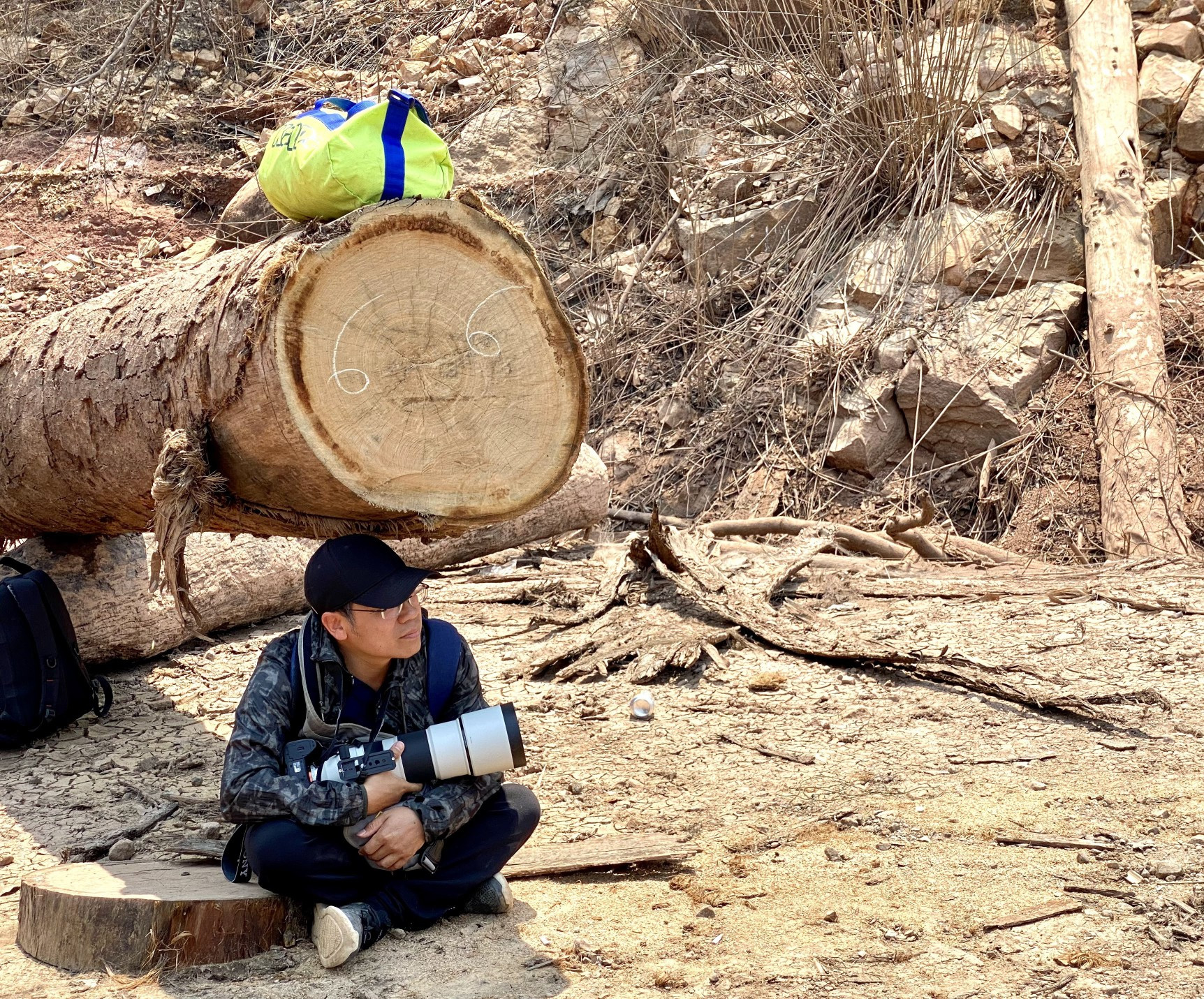
Hoang has been traveling throughout Vietnam. He visits every province to find and eliminate the "depots that execute wild birds". He has been to Bhutan to see the "tiger dens playing with the cloud on the roof of the world" and went to Africa to "expose the bitter truth about tiger bone glue".
At first, he thought that he just needed to travel to collect materials to write articles to publish in newspapers, film landscapes to broadcast his reports on TV, and have convincing proof for his lectures.
But the more he travelled and the more wild animals he saw killed, the more intensely he began to feel about protecting wildlife.
For Hoang, in addition to his passion and talent, it is the community which is a driving force to continue traveling and publish his articles to ring the alarm about the disappearance of wild animals.
He wrote about rhinos in his article, "The hunting, killing, trafficking and using rhino horns from Africa"; about sea turtles, after he witnessed the illegal trade of sea turtles in Nha Trang; and most recently, about rare and precious birds in "10 days in the paradise".
It is not easy to conduct investigations about wildlife trafficking cases, especially in areas with strict control. Hoang said he sometimes has to overcome difficulties, from severe weather to threats from illegal organizations, as well as risks in every journey. Because of this, he has to be cautious and thoughtful before every move.
Asked how he chooses topics for his articles, Hoang said he concentrates on a topic in a certain period.
“For example, after we struggled to protect rhinos, people tended to use rhino horns less. And now, people eat wild birds too much and we decided to come forward and establish a wild bird protection association,” he said.
“When people become aware of the danger to wild birds, we will talk about other species in the wild,” he said.
Investigating and settling problems to the very root has been his motto throughout his career.
The veteran reporter stressed that journalism requires a multi-dimensional and comprehensive perspective. Hoang uses information materials of the past, including information from hundreds of years ago, for his research and investigation.
These have included materials in Demotic script and in English. There are also valuable materials with important information that researchers have discovered, collected and analyzed over a long time.
“So I can stand on the shoulders of giants. In-depth materials give me a more comprehensive vision,” he said.
Regarding elephant tusks, he said it is not accidental that ivory became sacred and precious. The image of ivory appeared in fairy tales and myths, which contributed to human’s ignorance about the magical use of ivory. If journalists don’t have deep understanding about the subjects they write about, their articles will not be convincing.
Do Doan Hoang said a question is always in his mind: "Can you measure your contributions to the development of society?" It is a question which has kept him traveling, investigating and learning over the last two decades.
To collect materials for articles about the tricks used to kill wild animals, he met Nghe An’s policemen to talk about his ideas. Later, he contacted many experts, leaders of ministries and branches, and National Assembly deputies, persuading them to raise their voice in defence of wild animals.
“Environmental problems are becoming more and more serious, and the story that we have to think more about is the environment in general. The problem is not only forests and climate change, not only the pain to nature, but also the culture of dealing with the living environment and inspiring the next generations,” he said.
Vu Lua